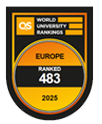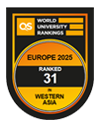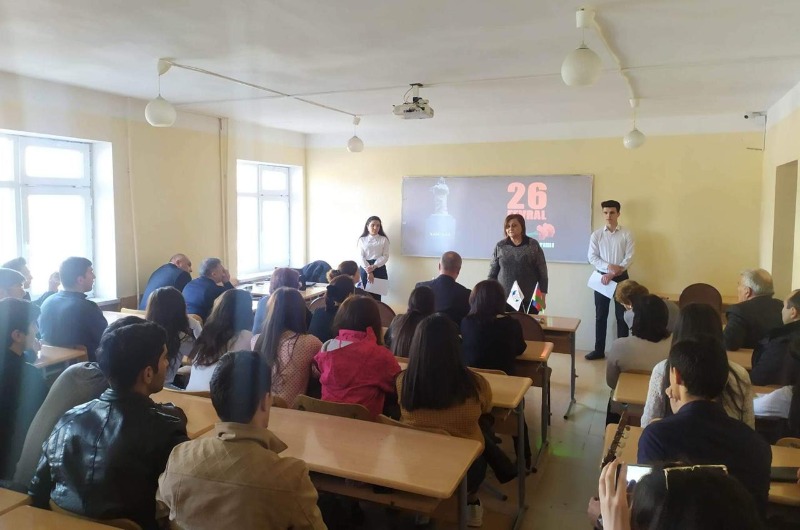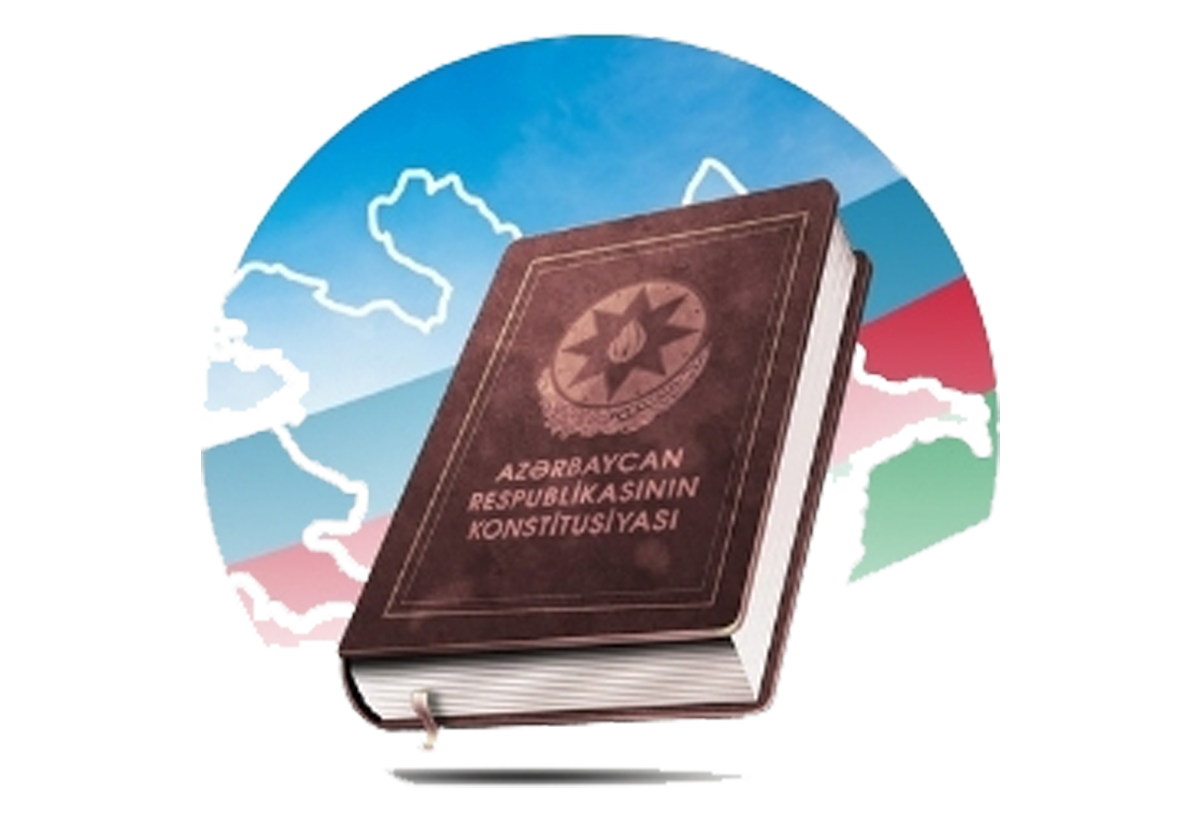AN EVENT DEDICATED TO THE MEMORY OF THE VICTIMS OF THE KHOJALY TRAGEDY WAS HELD AT THE FACULTY OF PHYSICS AND ELECTROENERGETICS
On February 24, an event dedicated to the memory of the victims of the Khojaly tragedy was held at the Faculty of Physics and Electroenergetics with the organizational support of the Student Youth Organization.
At first participants with a minute of silence paid tribute to the victims. Then the dean of the faculty, docent Tamella Ahmedova delivered speech and spoke about the atrocities of Armenian militants who attacked the city of Khojaly on the night of February 25-26, 1992. She noted that, throughout history, Armenian nationalists carried out ethnic cleansing of Azerbaijanis in their original lands, and expelled them from their historical places of residence. 28 years have passed since the Khojaly tragedy, but the people remember and will never forget these bloody events. The dean also noted that a lot of work is being done in the republic to ensure that the whole world learns about these events.
The associate professor of the Department of the History of Azerbaijan and Eastern European nations Elmar Khalilov spoke. He said that the Azerbaijani people were repeatedly subjected to genocide and expulsion from their own lands at various stages of history. Another such act was genocide against the Azerbaijani people, perpetrated by Armenian nationalists on the night of February 25-26, 1992 in Khojaly. Only after return of national leader Heydar Aliyev to leadership of the country, the Armenian genocide against the Azerbaijani people was given a political and legal assessment. By the decision of the Milli Majlis of February 24, 1994, February 26 was declared Khojaly genocide day. Currently, one of the main directions of the country's foreign policy is work on the recognition by all countries of the world of the Khojaly genocide. As a result of the consistent targeted foreign policy pursued by President Ilham Aliyev, a number of international organizations have already recognized the occupation of Azerbaijan lands by Armenia and the fact of the Khojaly genocide. Work in this direction continues. Particularly noteworthy is the work within the framework of the “Justice for Khojaly!” compaign.
After the speeches, students recited poems dedicated to Khojaly.
In conclusion, a video was shown about the Khojaly tragedy.
Translation: Linguistic Center



